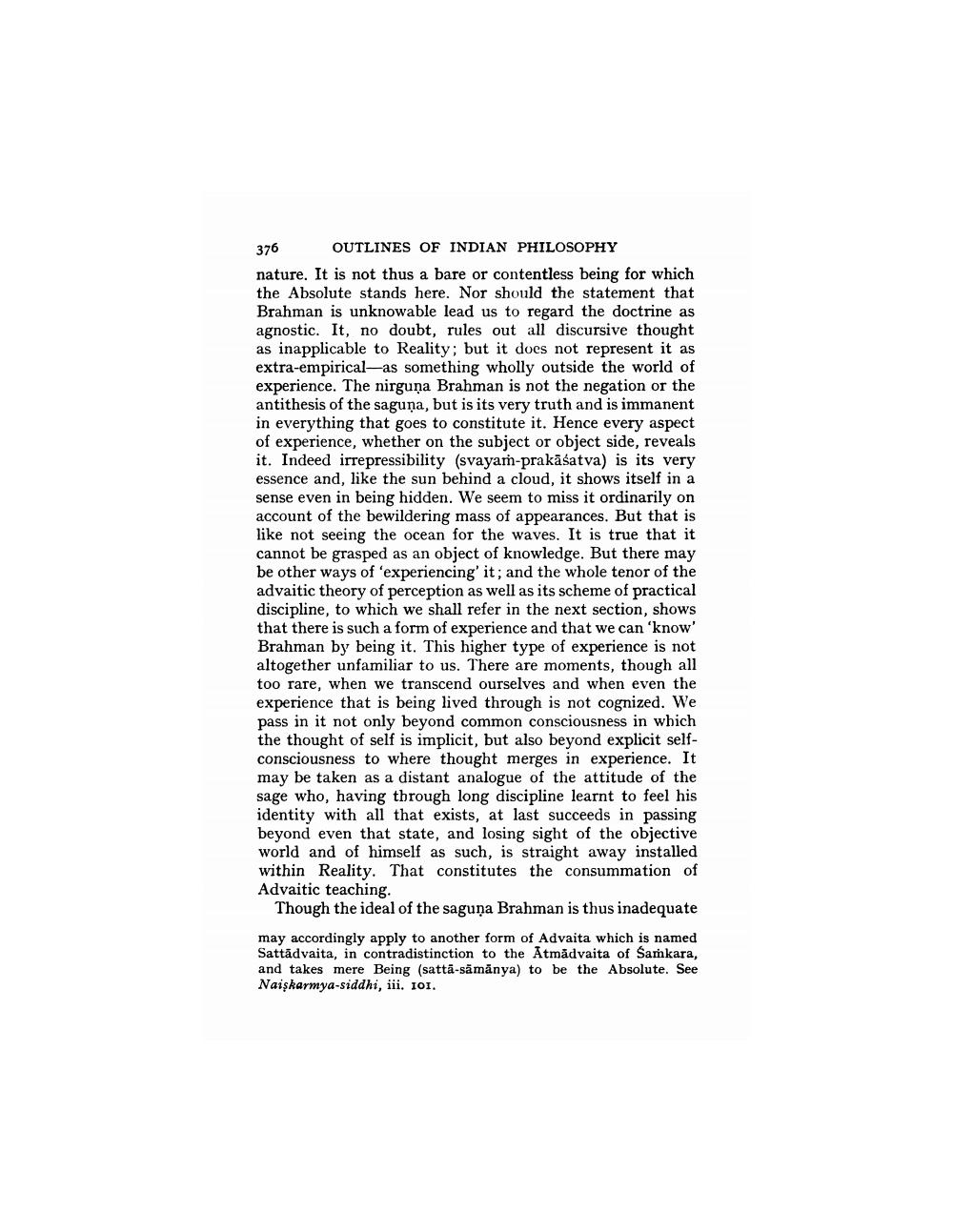________________
376
OUTLINES OF INDIAN PHILOSOPHY
nature. It is not thus a bare or contentless being for which the Absolute stands here. Nor should the statement that Brahman is unknowable lead us to regard the doctrine as agnostic. It, no doubt, rules out all discursive thought as inapplicable to Reality; but it does not represent it as extra-empirical as something wholly outside the world of experience. The nirguna Brahman is not the negation or the antithesis of the saguna, but is its very truth and is immanent in everything that goes to constitute it. Hence every aspect of experience, whether on the subject or object side, reveals it. Indeed irrepressibility (svayamh-prakāśatva) is its very essence and, like the sun behind a cloud, it shows itself in a sense even in being hidden. We seem to miss it ordinarily on account of the bewildering mass of appearances. But that is like not seeing the ocean for the waves. It is true that it cannot be grasped as an object of knowledge. But there may be other ways of 'experiencing' it; and the whole tenor of the advaitic theory of perception as well as its scheme of practical discipline, to which we shall refer in the next section, shows that there is such a form of experience and that we can 'know' Brahman by being it. This higher type of experience is not altogether unfamiliar to us. There are moments, though all too rare, when we transcend ourselves and when even the experience that is being lived through is not cognized. We pass in it not only beyond common consciousness in which the thought of self is implicit, but also beyond explicit selfconsciousness to where thought merges in experience. It may be taken as a distant analogue of the attitude of the sage who, having through long discipline learnt to feel his identity with all that exists, at last succeeds in passing beyond even that state, and losing sight of the objective world and of himself as such, is straight away installed within Reality. That constitutes the consummation of Advaitic teaching.
Though the ideal of the saguna Brahman is thus inadequate
may accordingly apply to another form of Advaita which is named Sattadvaita, in contradistinction to the Atmadvaita of Samkara, and takes mere Being (satta-sämanya) to be the Absolute. See Naişkarmya-siddhi, iii. 101.




